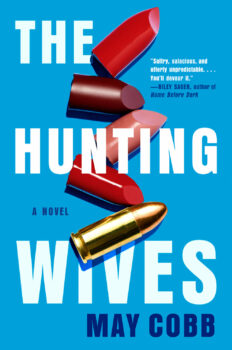Writers know something about discipline. To write a novel, you need to be willing to sit down every day and try to put a shape to a narrative that exists only as evanescent possibility. You have to be willing to spend your free hours wrestling with something that (unless you are very lucky) no one but you cares if you ever get right. It’s a lonely business, and requires a certain amount of determination and grit.
Still, we’ve got nothing on gymnasts. Watching the Final Five at the Summer Olympics, I wondered how a young girl develops that kind of superhuman concentration, not to mention the self-control required to endure a foot fault or a low score from a Russian judge without crying on camera. I like to think that your average working writer has maybe a fifth of the strength of character of a Simone Biles or an Aly Raisman. Maybe a tenth. Definitely not more than that.
In Megan Abbott’s latest novel, You Will Know Me, she takes us inside the education of an elite gymnast from age three to age sixteen. Devon Knox is not only the most talented athlete at her suburban gym—she’s the best her coach and the town have ever seen. Her parents, Katie and Eric, are no stage mom and dad; they insist that the motivation to pursue training and elite competitions is all coming from Devon, and for the most part, they seem to be right. Devon is preternaturally focused (her nickname is “Ice Eyes”) and doesn’t seem to think or talk about anything but completing the progressively difficult steps that will get her to the Olympics. Katie is the novel’s point of view character, and she clearly feels that trying to thwart Devon’s drive for gold would be both cruel and foolhardy. Devon is an “exceptional child,” and exceptional children must be nurtured and encouraged.
 It all makes a certain kind of sense, but we soon come to understand that Devon is as opaque to her mother as she is to the reader. Abbott excels at creating mood through imagery, and we are never allowed to forget that the community is invested not in Devon as a person, but specifically in Devon’s body. When, at an early meeting with Devon’s coach, Katie insists that Devon’s maturation into young womanhood will eventually interfere with her training, the coach’s odd reaction suggests that he knows what Katie doesn’t: that the maturation process can be stopped, or at least paused. At sixteen, Devon still doesn’t have her period, and her body is “a hard, smooth shell…hipless, breastless.” For her coaches and fellow gymnasts, that body seems to have an almost totemic power; for Katie, Devon’s body is a commodity, treated with a peculiar blend of professionalism and intimacy: “She…sewed cotton gusset into the crotch of Devon’s competition leotards if they were cut too tight for underwear. She…like every gymnast mom, was so acutely attuned to her daughter’s body, hands on her thighs, massaging a groin pull, that sometimes she felt it was her own.”
It all makes a certain kind of sense, but we soon come to understand that Devon is as opaque to her mother as she is to the reader. Abbott excels at creating mood through imagery, and we are never allowed to forget that the community is invested not in Devon as a person, but specifically in Devon’s body. When, at an early meeting with Devon’s coach, Katie insists that Devon’s maturation into young womanhood will eventually interfere with her training, the coach’s odd reaction suggests that he knows what Katie doesn’t: that the maturation process can be stopped, or at least paused. At sixteen, Devon still doesn’t have her period, and her body is “a hard, smooth shell…hipless, breastless.” For her coaches and fellow gymnasts, that body seems to have an almost totemic power; for Katie, Devon’s body is a commodity, treated with a peculiar blend of professionalism and intimacy: “She…sewed cotton gusset into the crotch of Devon’s competition leotards if they were cut too tight for underwear. She…like every gymnast mom, was so acutely attuned to her daughter’s body, hands on her thighs, massaging a groin pull, that sometimes she felt it was her own.”
Abbott is working with powerful themes here. The fetishization of Devon’s body reveals the uncanniness of the “normal” teenage body, held up as the ideal of beauty and desirability though it is, in a sense, incomplete. Katie’s unwillingness to acknowledge Devon’s interest in boys speaks to the squeamishness that many parents feel when confronted with their children’s development as sexual beings. Katie’s limitations, her failures of understanding and sympathy, make her a compelling protagonist, and yet her point of view also presents some missed opportunities. It was hard for me to believe that she could be so willfully blind to her daughter’s commodification, even as she participates in it. Or, if she were aware on some level but unwilling to confront it, whether the novel might have gestured toward the way in which these societal forces bound up in gender and sexuality so often become absorbed and reproduced by those whom they most affect. Similarly, her lack of interest in her younger child, a boy who is almost criminally neglected while the family is preoccupied with Devon, also strained credibility without some gesturing toward what this might represent. There are, of course, plenty of abusive and neglectful parents out there, but Katie is so invested in her sense of herself as a good mother that it seems that she’d have a bit more self-awareness.
These are minor criticisms of a novel that manages to be well-plotted, intellectually compelling, and (it’s Abbott, after all) pleasingly creepy. Devon’s body is at the heart of it, enigmatic and unknowably powerful. As Katie puts it, Devon is “the most dangerous thing in her own life. Her body, the only dangerous thing.”






